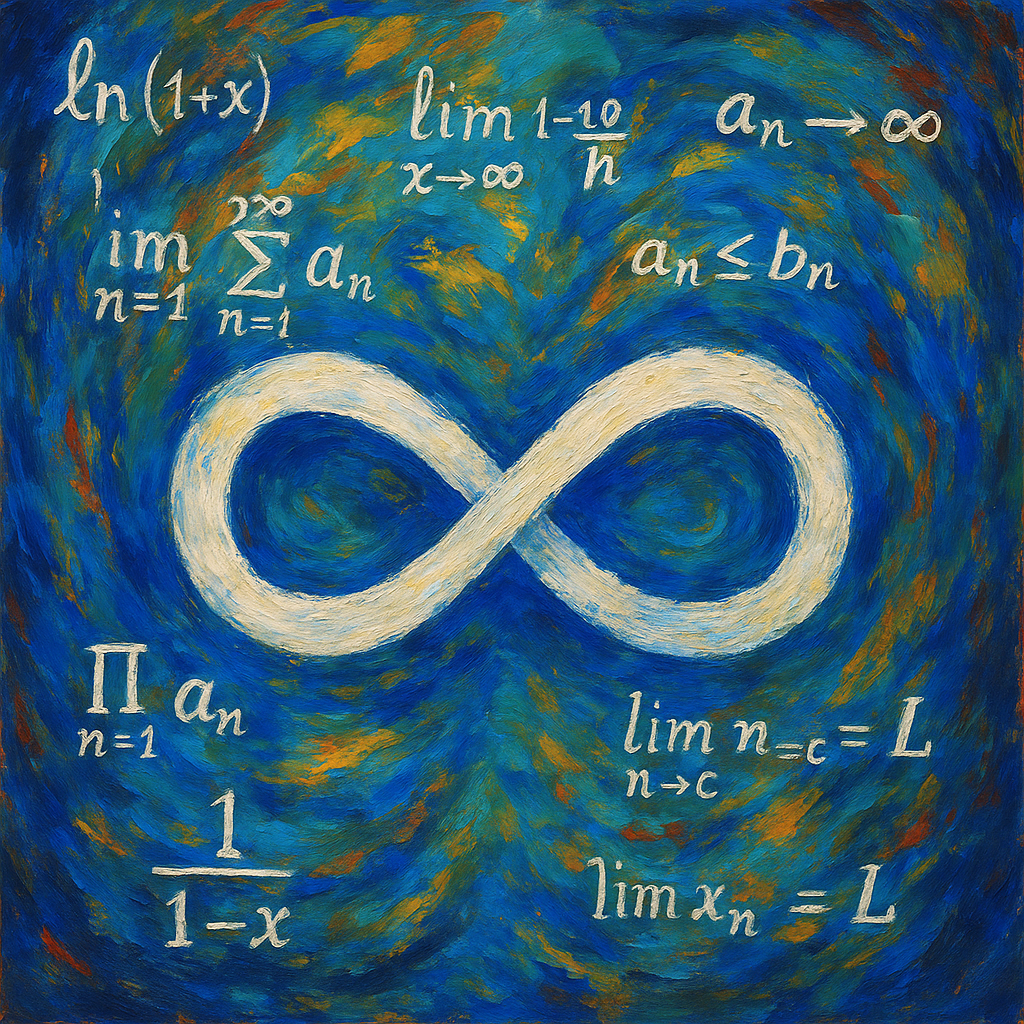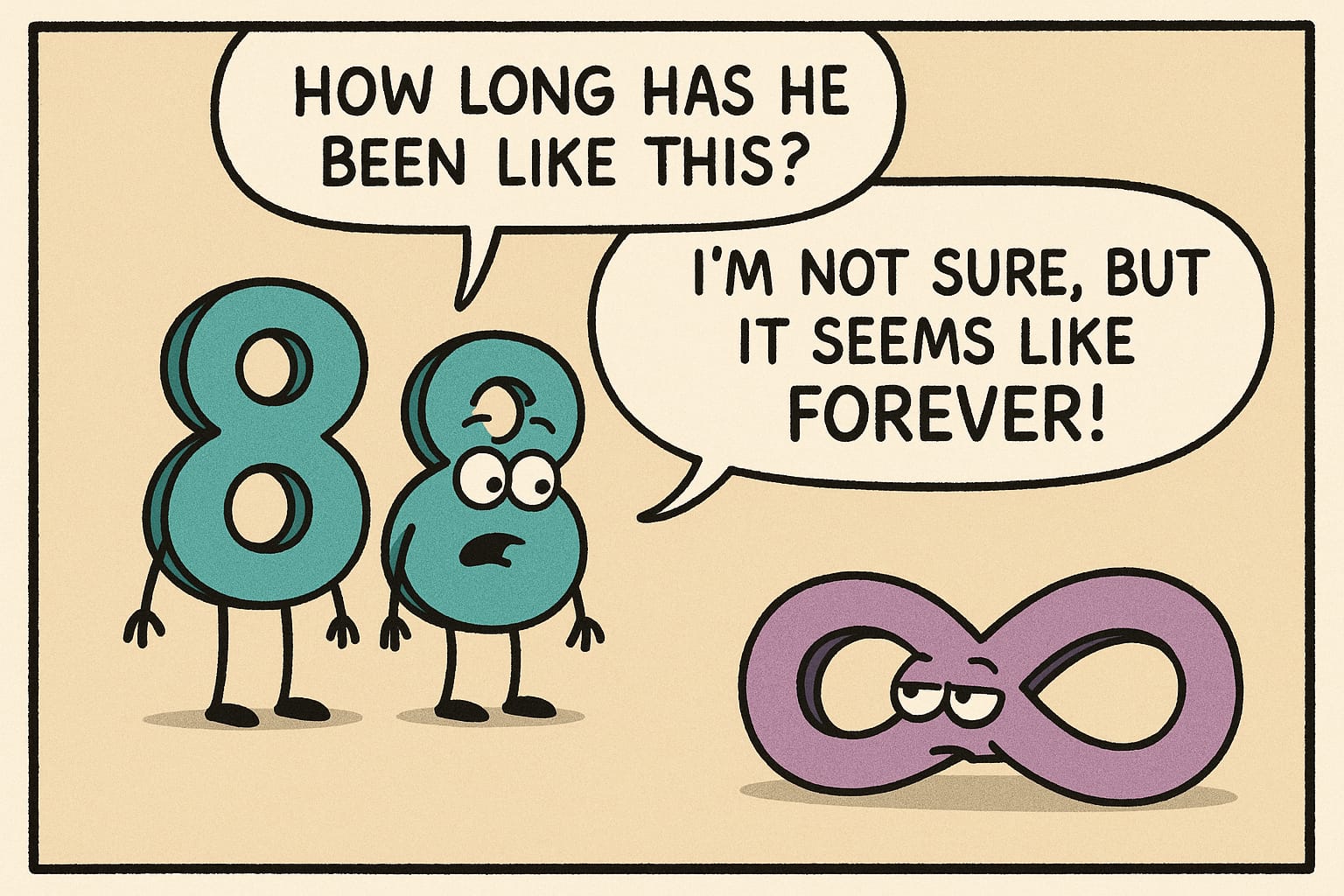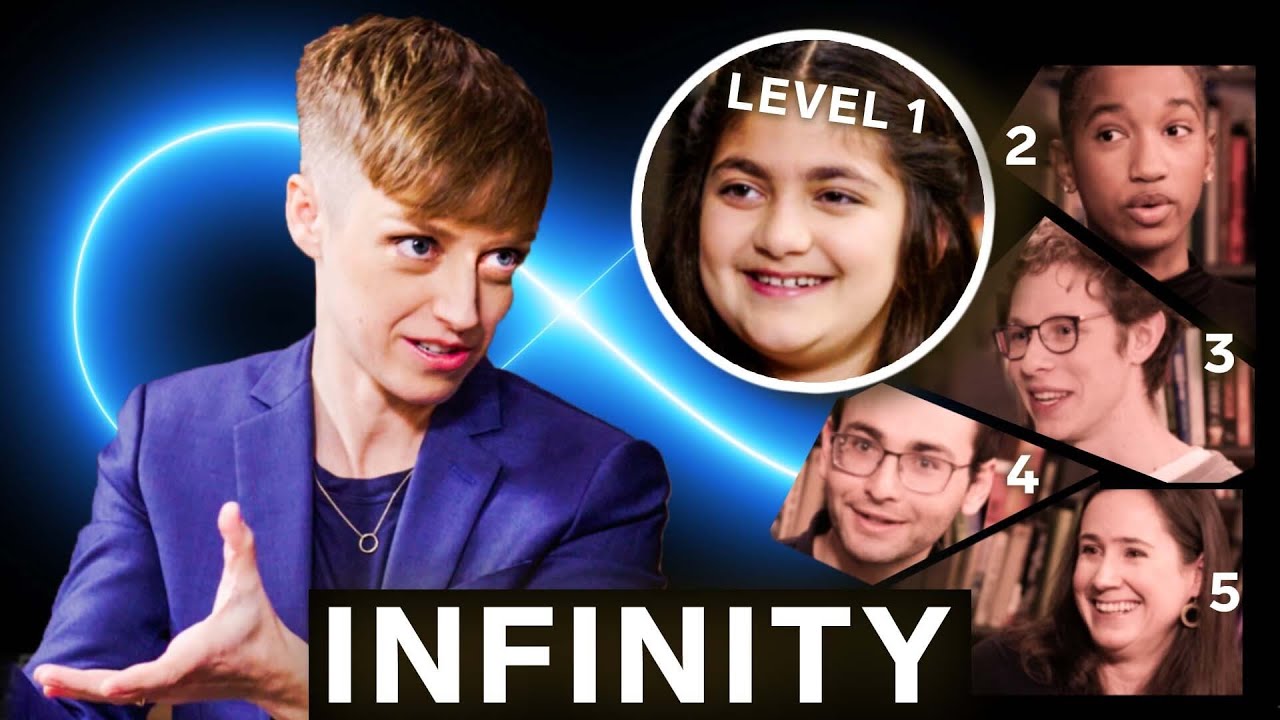Understanding Infinity

June 12, 2025
In my experience as a math tutor I have frequently noticed a certain difficulty from secondary and undergraduate students to deal correctly with the concepts of "infinity", mainly when used in the context of limits. I came to the conclusion that most of these issues come from the fact that this entity is treated, often by teachers themselves, "just like a number", and students are taught things like "infinity times 0 is equal to 0", or "+infinity times -infinity is equal to -infinity"....
The problem does not lie in the inherent correctness of these statements, rather in the language used in them, that makes reference to certain arithmetic properties which are typical of finite numbers. It is true that mathematicians, for certain applications, consider infinity "just like a number", but this is a simplification that must be introduced to students only once the overall concept of infinity is clear.

Understanding infinity requires an important degree of abstraction, which is normally not a pillar of most mathematical topics. Approaching the concept of infinity in the right way, starting from the primary years of school, ensures that the students' appreciation of this concept will grow, change, and become more sophisticated as they also grow, change, and become more sophisticated.
This very interesting video, where the mathematician Emily Riehl engages in discussions about infinity with 5 different students from different levels, is the most interesting thing I have found on YouTube and is the best example for this evolution of the concept.
